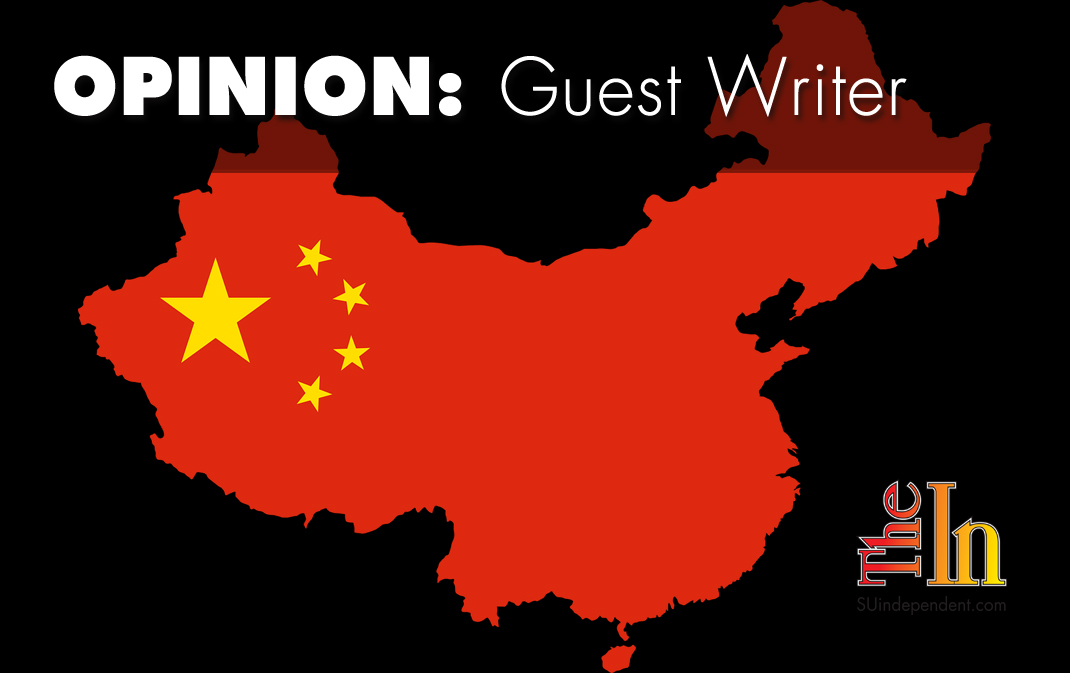
Trade with China, but with caution
By Peter Roff
As it should be, China is very much at the center of the national conversation. Over one billion people live there. They constitute the largest single potential market for U.S. goods and services anywhere in the world. We want to trade with them — and should want to — but under a set of rules that does not leave the United States at a disadvantage.
The need for a new trade agreement has been a major piece of business for the Trump administration. And after some intense negotiations, including recent meetings at the White House, progress is being made. At least it looks that way, which is why President Trump’s March 1 deadline for raising tariffs on $200 billion worth of goods coming to this country from China has been delayed to later this year.
Of singular importance is the movement toward new rules governing intellectual property that will work to the benefit of the U.S. Up to now, China has been known as a place where American developed IP either must be surrendered as a cost of doing business or is just stolen by the government.
Hopefully, those days will soon behind us. Protecting America’s intellectual property is important, as is gaining greater access to Chinese markets. Both would be a boost to the U.S. economy, but that’s only part of the challenge. It’s important to remember that China, while a major trading partner, is not an ally. It is a competitor, militarily and economically, and needs to be treated as such.
It’s well and good to open the Chinese market to greater access for U.S. manufactured goods and services. That’s trade we want. It’s another thing entirely to let the Chinese enter into joint ventures with U.S. companies in areas that are strategically important without subjecting those deals to a thorough government review to ensure national security interests are not compromised.
There’s a procedure for that, run by a Treasury Department-led inter-agency committee called the Committee on Foreign Investment in the United States. When allowed to do its job, CIFUS works quite well. When it isn’t, it’s time to sound the alarm bell — as is the case where a joint venture involving Chinese-owned Tsingshan Group and Allegheny Technologies Incorporated, a U.S. company based in Pittsburgh, Pennsylvania.
Tsingshan, the world’s largest producer of stainless steel, has deep ties to the Chinese military. ATI is a critical supplier of advanced materials to the U.S. aerospace and defense sectors. A joint venture between the two is just the kind of deal CIFUS should review beforehand to make sure nothing of importance is compromised. Unfortunately, it appears that CFIUS never got the chance. Neither ATI nor Tsingshan notified it of the deal when it was proposed in late 2017, and it closed in March 2018 without being reviewed.
That was a mistake that needs to be corrected.
The Foreign Investment Risk Review Modernization Act that passed Congress on a bipartisan basis and the accompanying U.S. export control reforms signed into law last year strengthened the U.S. government’s ability to review transactions that may pose a national security risk. The potential for transfer of sensitive technology between ATI and Tsingshan (and from there to the Chinese military) is just the kind of thing the law was intended to prevent.
It is not as important to establish why it didn’t happen as it is to correct the error. CFIUS should exercise its authority and conduct a review anyway, even though the deal has already been consummated. It is important to acknowledge legitimate concerns raised by those who follow these issues closely, including some members of Congress, that this joint venture is not another attempt by China to extract critical intellectual property from the United States while simultaneously undermining U.S. manufacturing.
China is an important market for U.S. goods. In our eagerness to sell to them, however, we must always remember that they play by a different set of rules. The U.S. government needs to be certain we are not compromising our national security interests just to make a few dollars.
The viewpoints expressed above are those of the author and do not necessarily reflect those of The Independent.
How to submit an article, guest opinion piece, or letter to the editor to The Independent
Do you have something to say? Want your voice to be heard by thousands of readers? Send The Independent your letter to the editor or guest opinion piece. All submissions will be considered for publication by our editorial staff. If your letter or editorial is accepted, it will run on suindependent.com, and we’ll promote it through all of our social media channels. We may even decide to include it in our monthly print edition. Just follow our simple submission guidelines and make your voice heard:
—Submissions should be between 300 and 1,500 words.
—Submissions must be sent to editor@infowest.com as a .doc, .docx, .txt, or .rtf file.
—The subject line of the email containing your submission should read “Letter to the editor.”
—Attach your name to both the email and the document file (we don’t run anonymous letters).
—If you have a photo or image you’d like us to use and it’s in .jpg format, at least 1200 X 754 pixels large, and your intellectual property (you own the copyright), feel free to attach it as well, though we reserve the right to choose a different image.
—If you are on Twitter and would like a shout-out when your piece or letter is published, include that in your correspondence and we’ll give you a mention at the time of publication.
Articles related to “Trade with China, but with caution”
Birth tourism is unconstitutional and should be ended by executive order
Letter to the editor: The origin of the #MeToo movement in Korea



